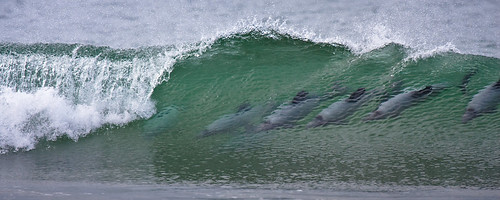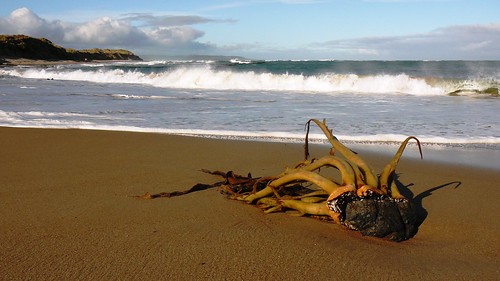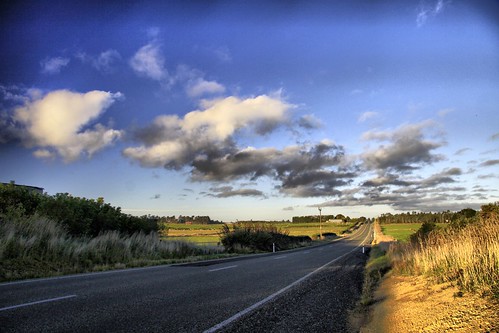Colin James's column for the Press for 26 December 2009
Making a Christmas meaning of life
While most big-name magazines have been contracting and even going out of print under the internet's assault, The Economist has been expanding.
The Economist is a distinctively English -- Oxbridge -- institution, a weekly established in 1843 to spread the word about free markets. From the 1970s it has pushed into the United States, Asia -- everywhere.
An Atlantic Monthly article in July forecast that it would soon overtake Newsweek in circulation in the United States. "Virtually alone among magazines, The Economist saw its advertising revenue increase last year by 25 per cent. Newsweek's and Time's dropped 27 per cent and 14 per cent respectively," Michael Hirschorn wrote.
Hirschorn ascribed this success to its being a "general-interest magazine for an ever-increasing audience, the self-styled global elite". And in fact its compact analyses of economies and politics and technology and much else, from drugs to the arts to climate change to (this week) the future of "progress", are challenging and engaging. It can be insufferably superior and opinionated and even shallow and wrong. But it is on the whole a quality read -- an apostasy in a world of shallow, slick marketers who bend and degrade everything from pork to politicians.
Tucked at the back of each week's Economist is an obituary. There you come across the rich and famous and also people you have never heard of who have made a mark that caught the editor's eye, a conservationist or anthropologist or "gambler and gangster".
Princess Di was there, "famous for being famous". So, in the edition of August 31 2006, was our Queen, Te Arikinui Dame Te Atairangikaahu, bearer of "the mana of a born chief" and (quoting Sir Tipene O'Regan) a "symbol of graciousness" in a society that "doesn't do grace very well".
This year two of those obituaries tell, when put together, a Christmas story.
One was of Marek Edelman, previously unknown to me, a "deputy commander of 220 untrained 'boys' with pistols and home-made explosives" in the Warsaw ghetto in 1943 who survived to become a heart specialist, be a Solidarity supporter and stay resolutely Polish despite waves of anti-Semitism, one of which drove his wife and daughter abroad. He lived to 90.
The other was of Christopher Nolan, an Irish poet of whom I first read 30 years ago, who, deprived of oxygen at birth, could not control his limbs or his voice but nevertheless found a way to speak his genius. He lived to 43.
Each had spirit. And each knew the power of love.
Edelman, the Economist wrote, saw amidst the pervasive death and disease of the ghetto a "terrible apathy" in which people no longer saw or believed the random horrors around them. He "tried to rouse them" by making newspapers and then by fighting: the "most important thing was just to be alive".
But there was another important thing: "His last book ... made a point of describing the love affairs of the Warsaw ghetto: the 'marvellous things' that happened and the ecstatic moments of happiness, when terrified and lonely people were thrown together. Man was naturally a beast but love could overwhelm him and love could be taught."
For Nolan, "his mother had told him, when he was three and crying with frustration, that she liked him just as he was. From that point, 'he [fanned] the only spark he saw, his being alive'."
It was his mother who, with love, kept that spark alive and made it possible for him to make a blaze. She cradled his head while he picked out a letter at a time on a typewriter with a rubber-tipped stick tied to his head, taking up to 15 minutes to write a word. She did that from when he was 11 till his death.
He wrote astonishing poetry. His autobiography won Whitbread book of the year. He lived a big life from inside a narrow cage.
He and Edelman teach that there are no automatic meanings. There is only a life. They each -- one put through a living hell as a young man, the other extremely limited by a bad birth -- made the most of what they were given.
Making a Christmas meaning of life
While most big-name magazines have been contracting and even going out of print under the internet's assault, The Economist has been expanding.
The Economist is a distinctively English -- Oxbridge -- institution, a weekly established in 1843 to spread the word about free markets. From the 1970s it has pushed into the United States, Asia -- everywhere.
An Atlantic Monthly article in July forecast that it would soon overtake Newsweek in circulation in the United States. "Virtually alone among magazines, The Economist saw its advertising revenue increase last year by 25 per cent. Newsweek's and Time's dropped 27 per cent and 14 per cent respectively," Michael Hirschorn wrote.
Hirschorn ascribed this success to its being a "general-interest magazine for an ever-increasing audience, the self-styled global elite". And in fact its compact analyses of economies and politics and technology and much else, from drugs to the arts to climate change to (this week) the future of "progress", are challenging and engaging. It can be insufferably superior and opinionated and even shallow and wrong. But it is on the whole a quality read -- an apostasy in a world of shallow, slick marketers who bend and degrade everything from pork to politicians.
Tucked at the back of each week's Economist is an obituary. There you come across the rich and famous and also people you have never heard of who have made a mark that caught the editor's eye, a conservationist or anthropologist or "gambler and gangster".
Princess Di was there, "famous for being famous". So, in the edition of August 31 2006, was our Queen, Te Arikinui Dame Te Atairangikaahu, bearer of "the mana of a born chief" and (quoting Sir Tipene O'Regan) a "symbol of graciousness" in a society that "doesn't do grace very well".
This year two of those obituaries tell, when put together, a Christmas story.
One was of Marek Edelman, previously unknown to me, a "deputy commander of 220 untrained 'boys' with pistols and home-made explosives" in the Warsaw ghetto in 1943 who survived to become a heart specialist, be a Solidarity supporter and stay resolutely Polish despite waves of anti-Semitism, one of which drove his wife and daughter abroad. He lived to 90.
The other was of Christopher Nolan, an Irish poet of whom I first read 30 years ago, who, deprived of oxygen at birth, could not control his limbs or his voice but nevertheless found a way to speak his genius. He lived to 43.
Each had spirit. And each knew the power of love.
Edelman, the Economist wrote, saw amidst the pervasive death and disease of the ghetto a "terrible apathy" in which people no longer saw or believed the random horrors around them. He "tried to rouse them" by making newspapers and then by fighting: the "most important thing was just to be alive".
But there was another important thing: "His last book ... made a point of describing the love affairs of the Warsaw ghetto: the 'marvellous things' that happened and the ecstatic moments of happiness, when terrified and lonely people were thrown together. Man was naturally a beast but love could overwhelm him and love could be taught."
For Nolan, "his mother had told him, when he was three and crying with frustration, that she liked him just as he was. From that point, 'he [fanned] the only spark he saw, his being alive'."
It was his mother who, with love, kept that spark alive and made it possible for him to make a blaze. She cradled his head while he picked out a letter at a time on a typewriter with a rubber-tipped stick tied to his head, taking up to 15 minutes to write a word. She did that from when he was 11 till his death.
He wrote astonishing poetry. His autobiography won Whitbread book of the year. He lived a big life from inside a narrow cage.
He and Edelman teach that there are no automatic meanings. There is only a life. They each -- one put through a living hell as a young man, the other extremely limited by a bad birth -- made the most of what they were given.
That is a Christmas message: look for what can be done not what can't be done.
Edelman seemingly bore no grudges: he "refused to express open hatred for the Nazis". Instead there was a "quiet thoughtfulness". That, too, is a Christmas message.
Nolan once "threw out his left arm in a great arc to give Christ two fingers because he was to blame". The "he" was not the actual Christ but his representation, in religion, of the caprice of forces humans cannot yet command and so seek to give a name and a form to. Christ would have agreed with the Christmas message implicit in Nolan's gesture: that no one -- and especially no child -- deserves ill luck, ill health, ill treatment or ill will.
Edelman's and Nolan's lives point up the conundrum of Christmas: the bad and good of humans, the darkness and the beauty. Christ's resolution of that conundrum was to invite us to promote the good of humans and not to trade in the bad.
It's an enduring message. One day humans might all get it.
.
-- Colin James, Synapsis Ltd, P O Box 9494, Wellington 6141
Ph (64)-4-384 7030, Mobile (64)-21-438 434, Fax (64)-4-384 9175
Webpage http://www.ColinJames.co.nz
Ph (64)-4-384 7030, Mobile (64)-21-438 434, Fax (64)-4-384 9175
Webpage http://www.ColinJames.co.nz








